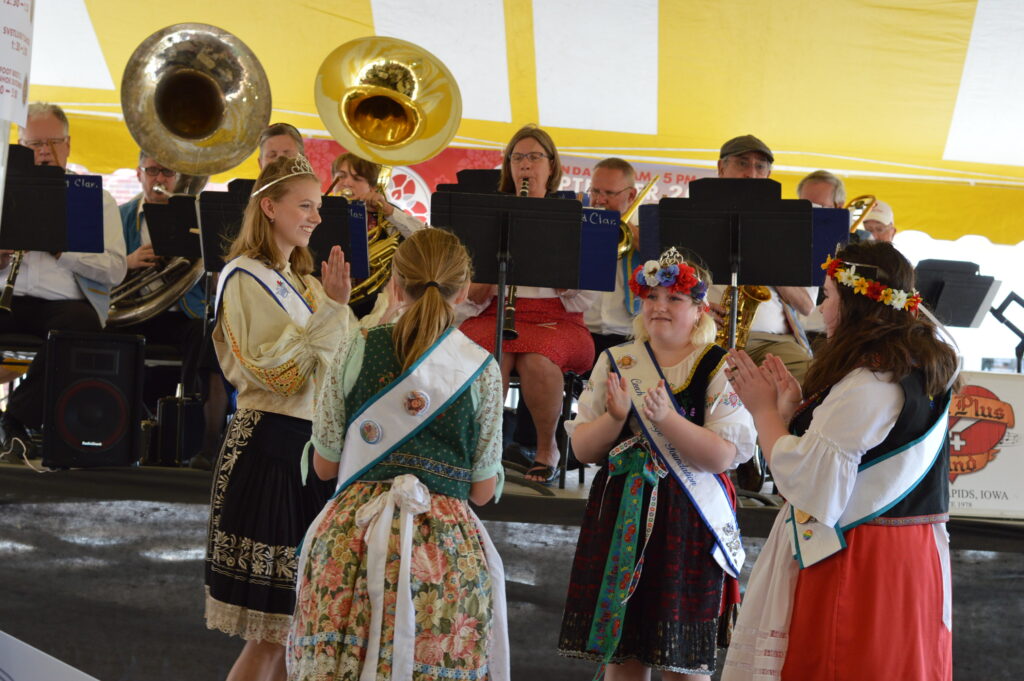
CEDAR RAPIDS, Iowa — Aside from gusty winds that played havoc with cash and sheet music, the weather could not have been more picture-perfect for the comeback of a long-running festival that was sidelined last year by the coronavirus pandemic and Iowa’s hurricane-strength derecho.
Czech Goulash Day, celebrated in various forms for the past 99 years by St. Wenceslaus Catholic Church, was revived Sept. 26, 2021, after a one-year hiatus.
Related: Cedar Rapids parish works to overcome derecho damage
St. Wenceslaus sustained damage during the August 2020 derecho when straightline winds of up to 140 mph tore through Cedar Rapids. Winds ripped off the roof of the church’s Glovik Parish Center, a 1926 gymnasium that serves as the hub of social activities, particularly Czech Goulash Day, a major event that draws festival-goers from Cedar Rapids and beyond. The church was also hard-hit during unprecedented flooding in 2008.
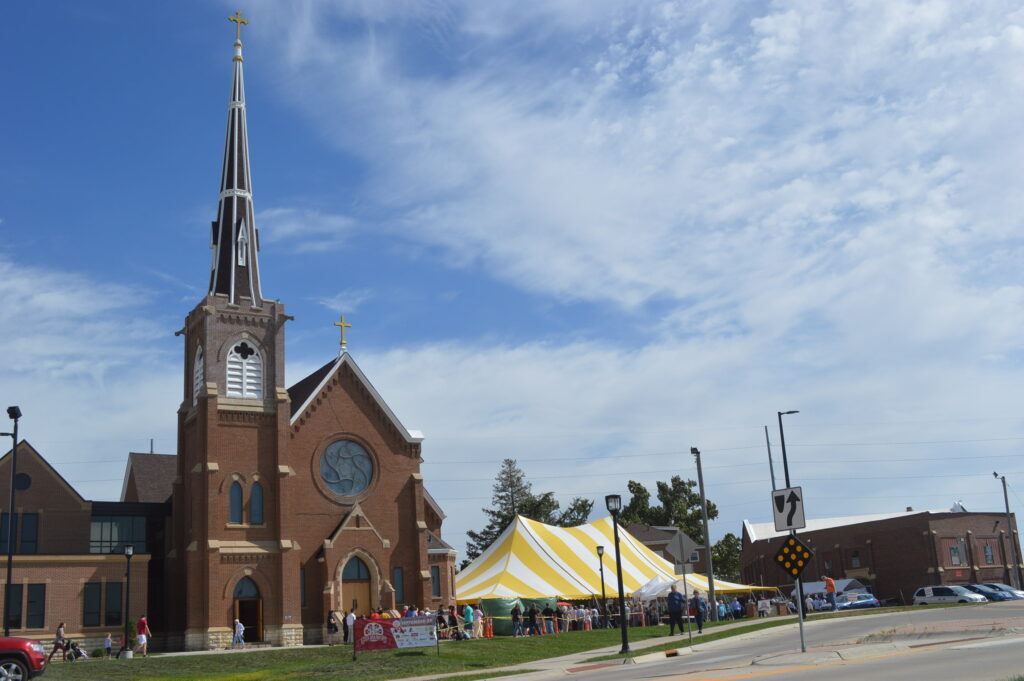
Volunteers were allowed to use the parish center to prepare for the festival’s namesake goulash – what some might consider a beef and vegetable stew — and to bake kolaches, a fruit-filled traditional Czech pastry. Otherwise, most events took place under a giant circus tent set up in the church parking lot. A Kids Zone was set up in Czech Heritage Park, which features a statue of St. Ludmila and her grandson, Wenceslaus.
Performances included the Iowa Accordion Club; Czech Plus Band, with a special appearance by the Czech Heritage Foundation Royal Court, and Barefoot Becky & the Ivanhoe Dutchmen.
The celebrations have been an annual parish fundraiser at St. Wenceslaus dating back to 1894, when it was known as the Bazaar. The Bazaar was suspended during WWI, but resumed in 1922.
Festival-goers could also tour the church, built in 1904, which was entirely cleaned and repainted after the derecho. Even as the coronavirus pandemic continues to surge across Iowa, most in attendance were maskless outdoors, while many wore them inside the church.
St. Wenceslaus, founded in 1874 by Bohemian immigrants, is a Czech National Parish, meaning any Catholic of Czech origin can be a member, regardless of parish boundaries.
See photos from the return of another Czech celebration in Iowa and more from Czech Goulash Day, below. (© Cindy Hadish/Homegrown Iowan)
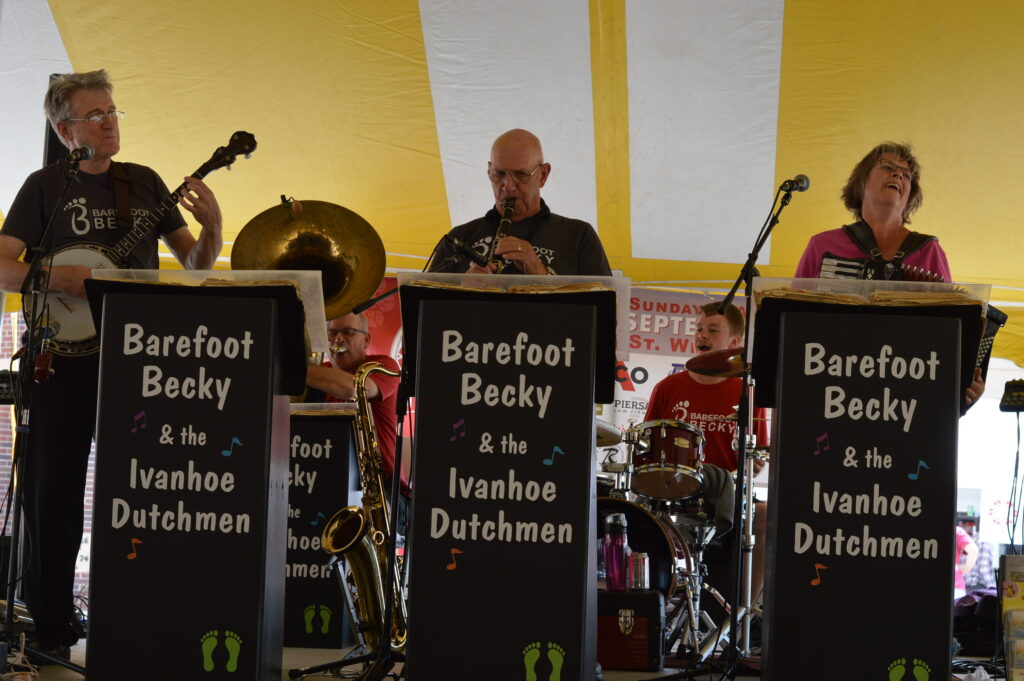
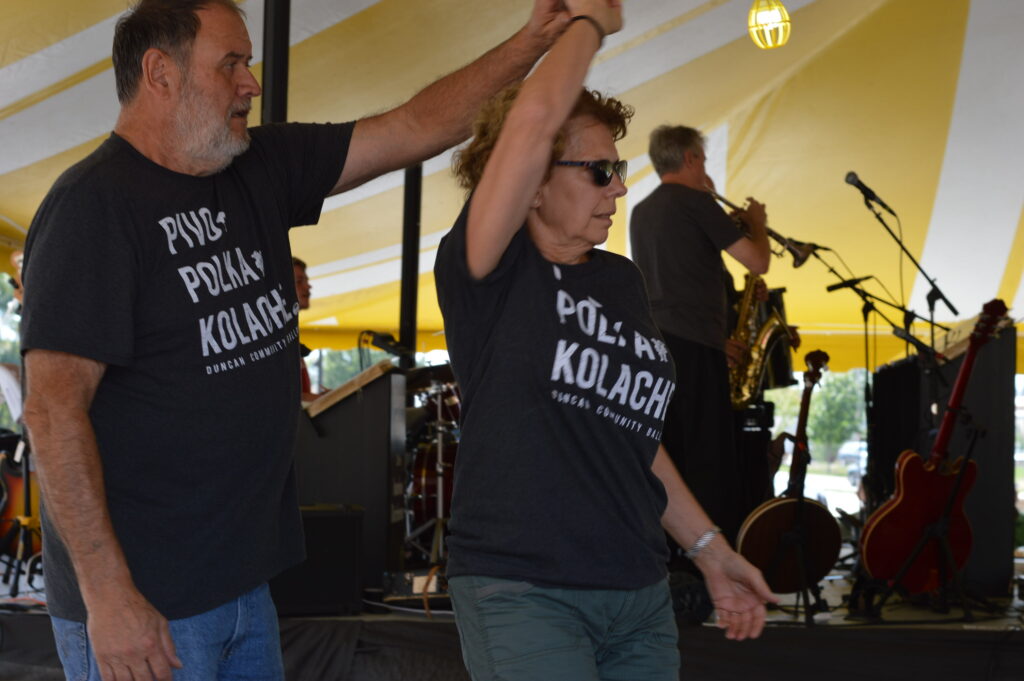
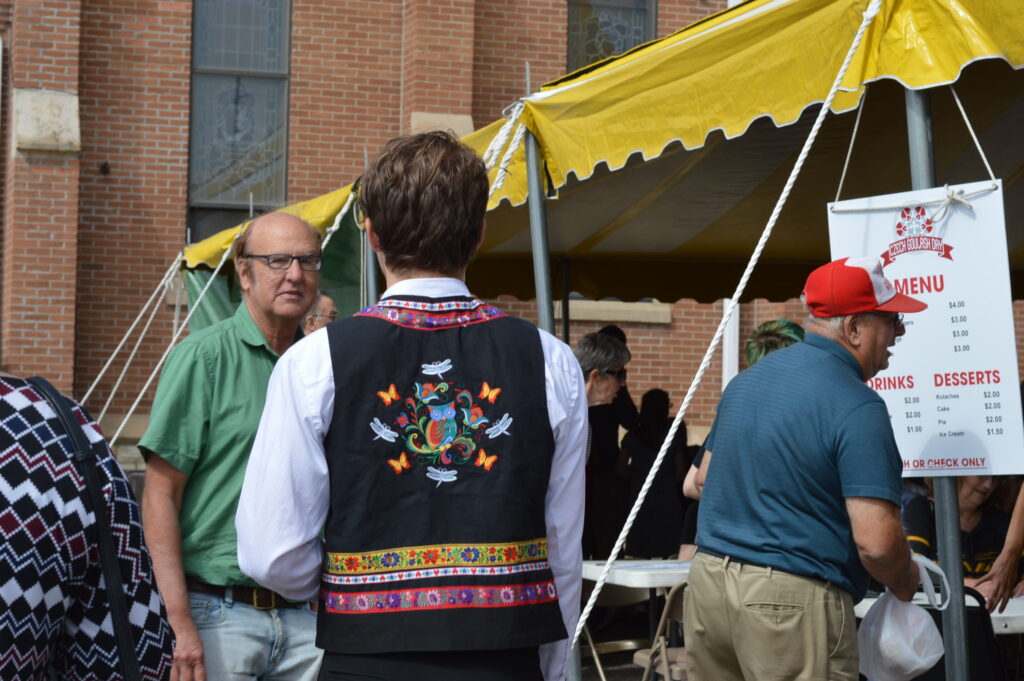
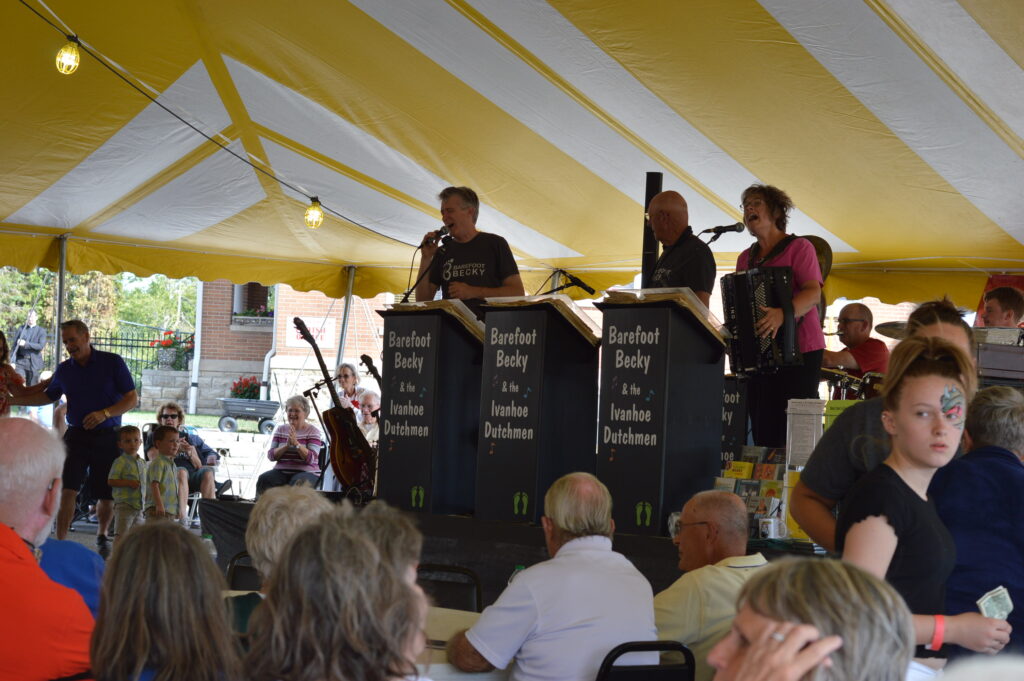
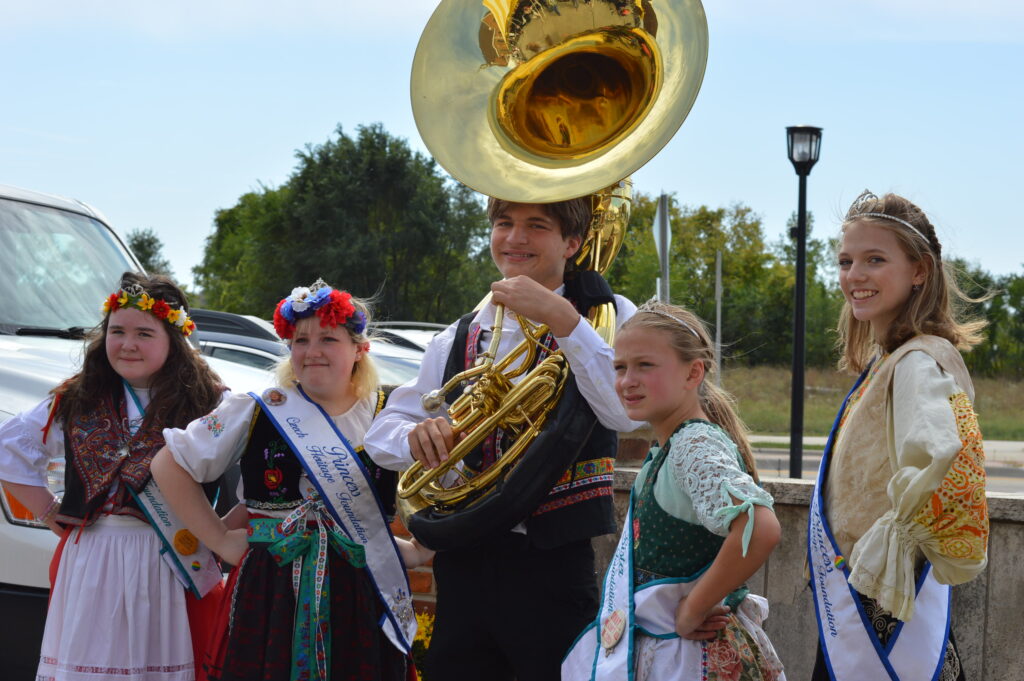
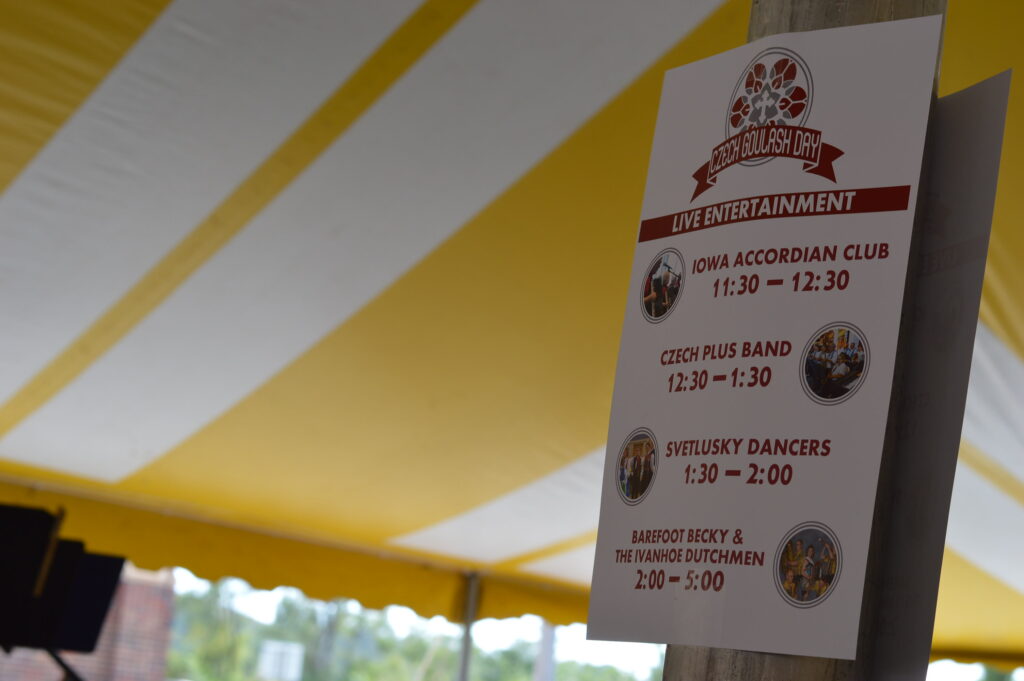
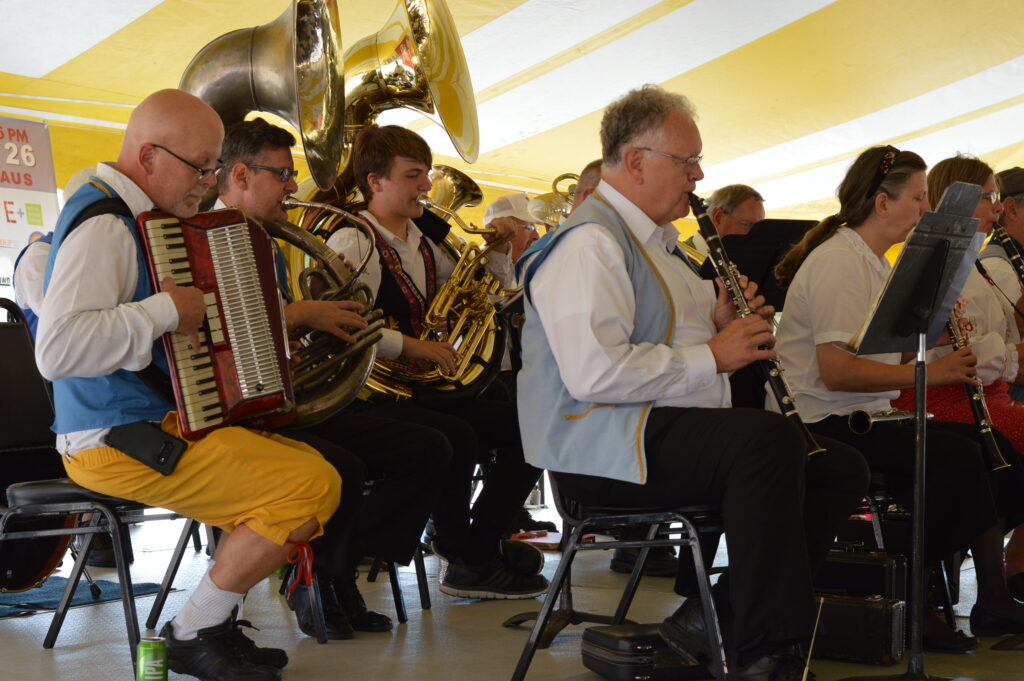
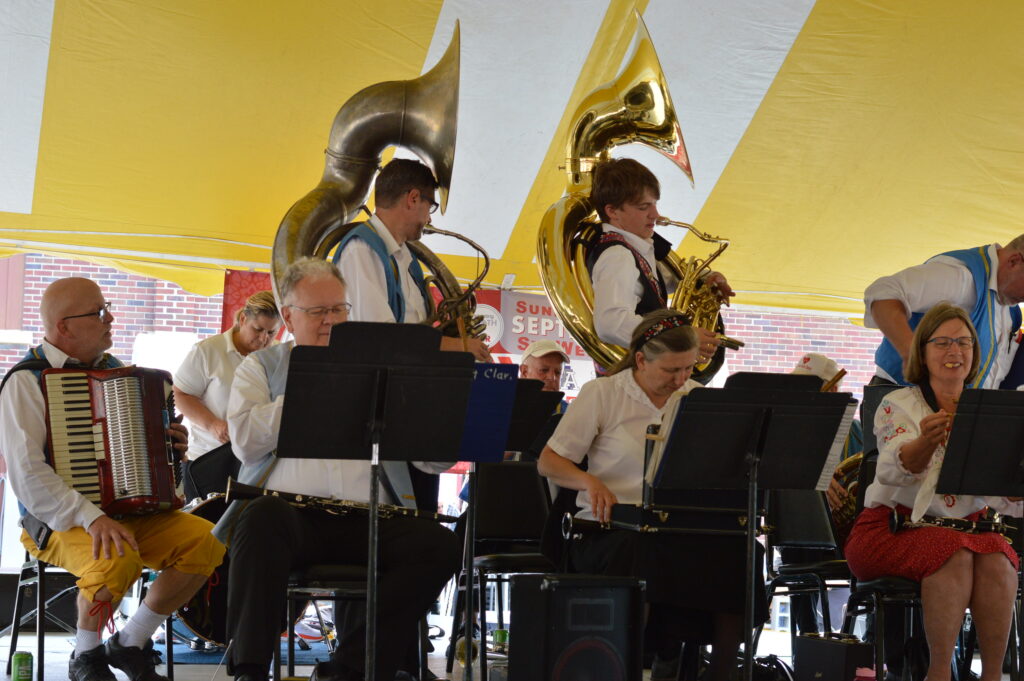
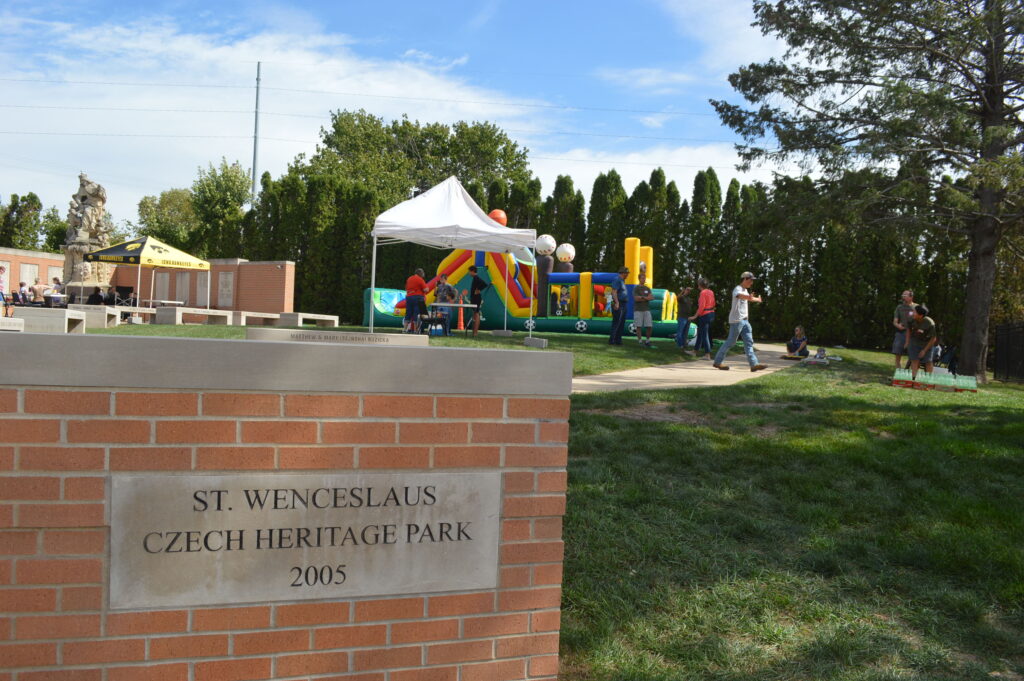
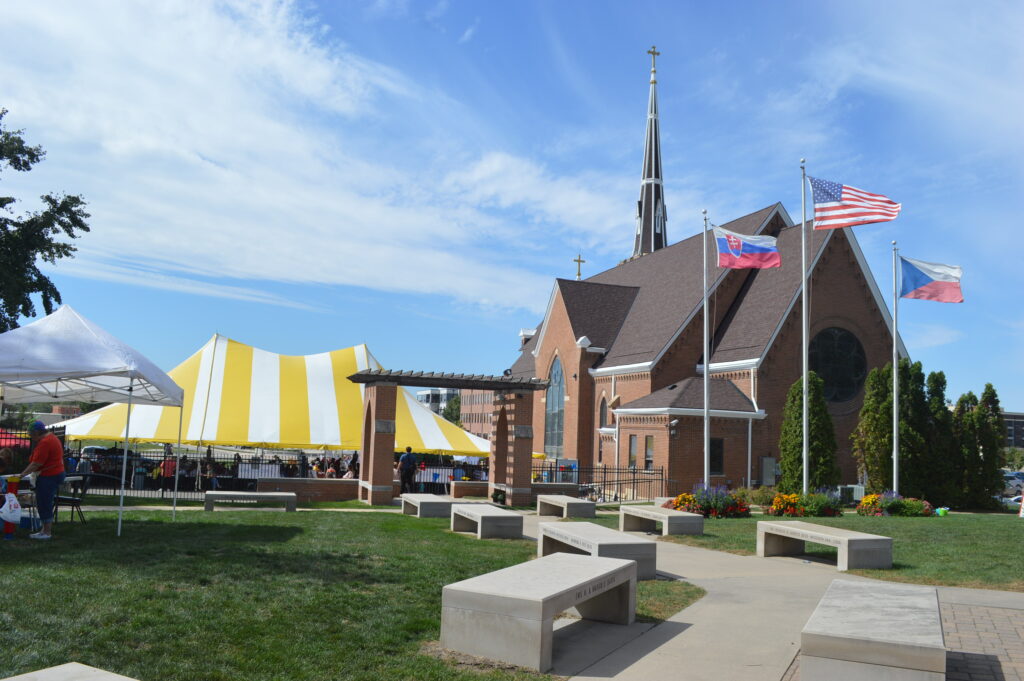
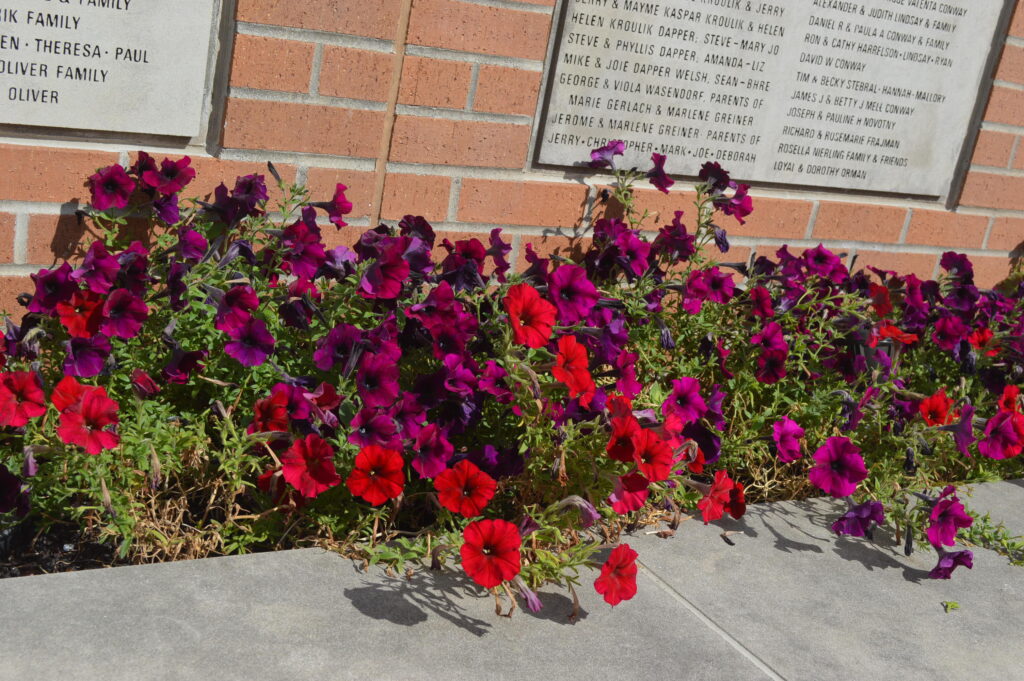
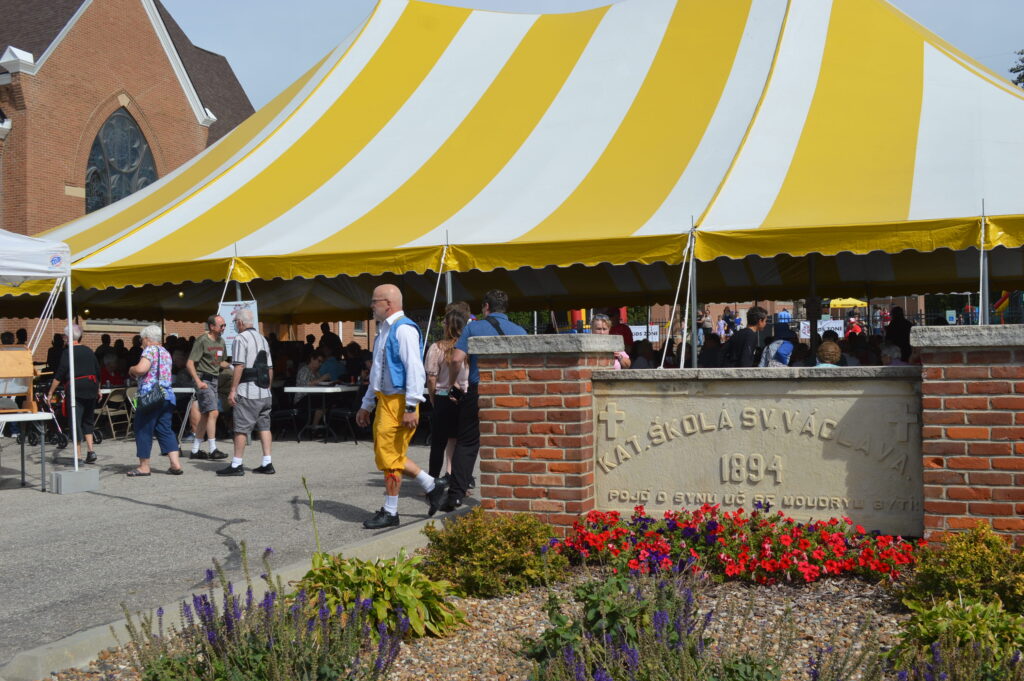
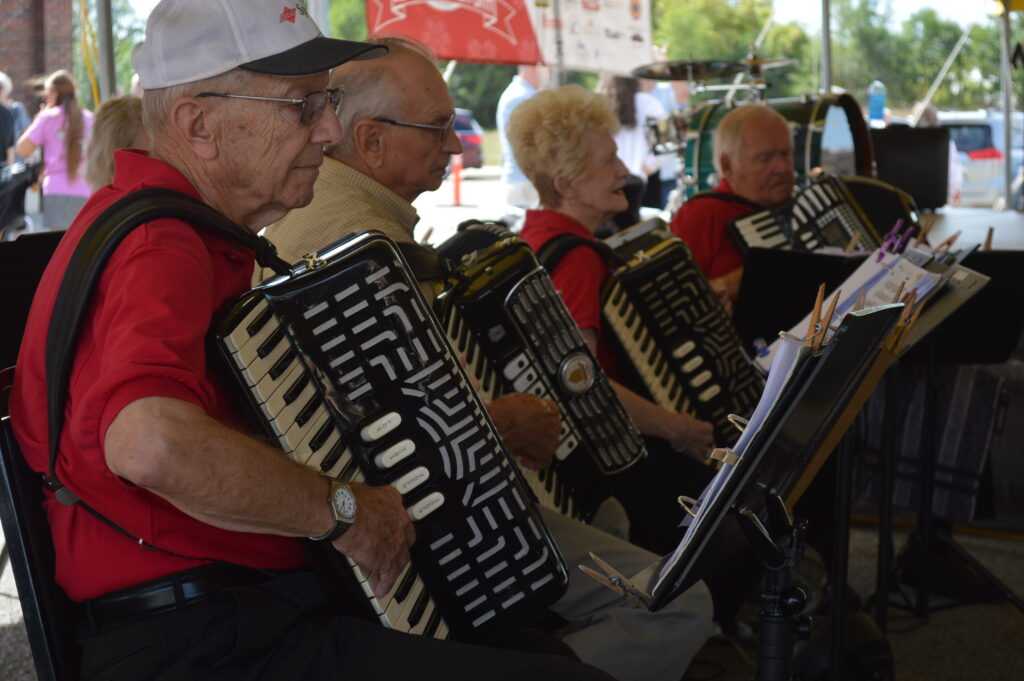
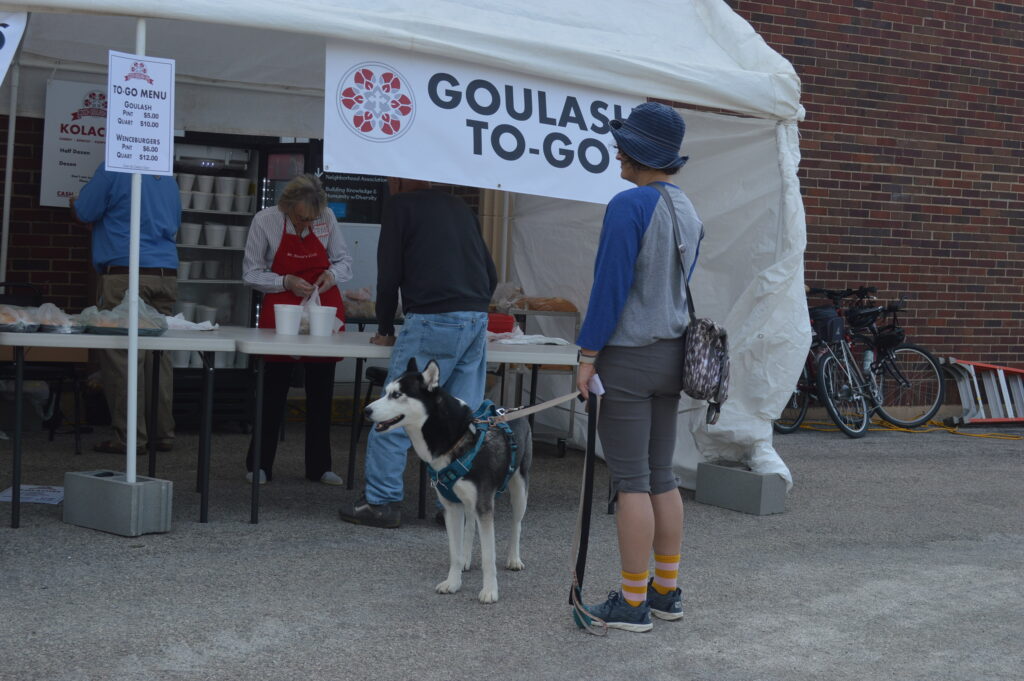
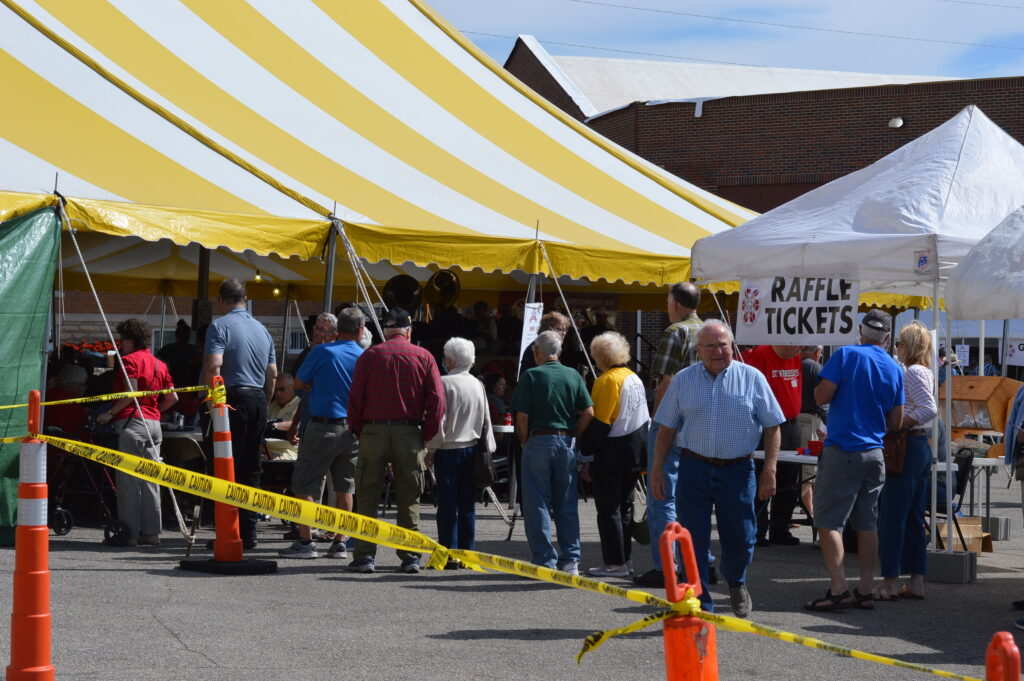

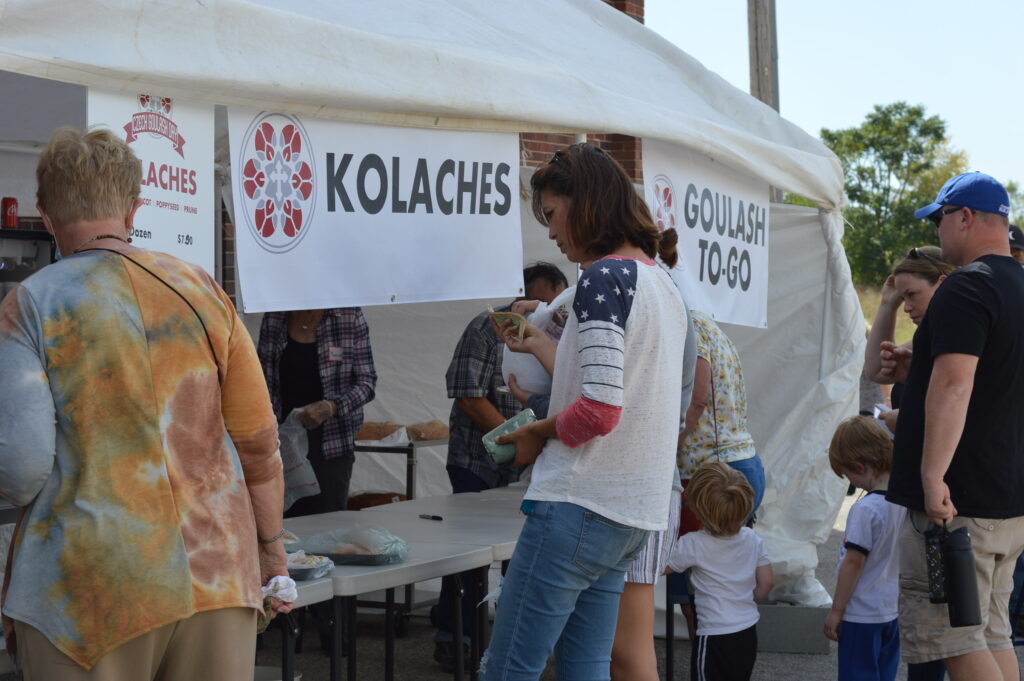
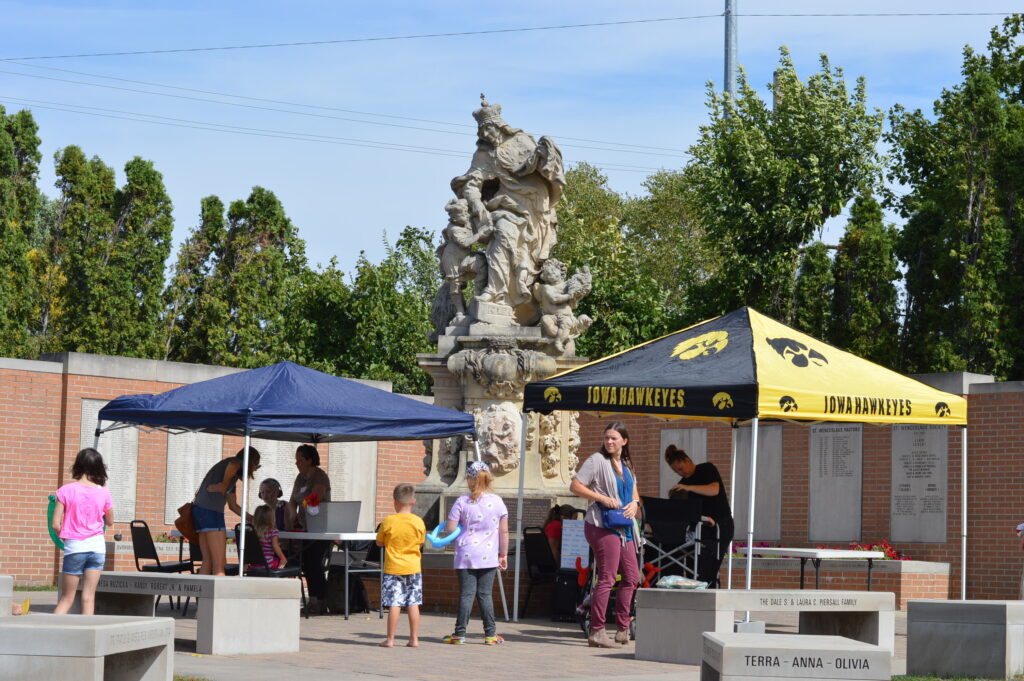
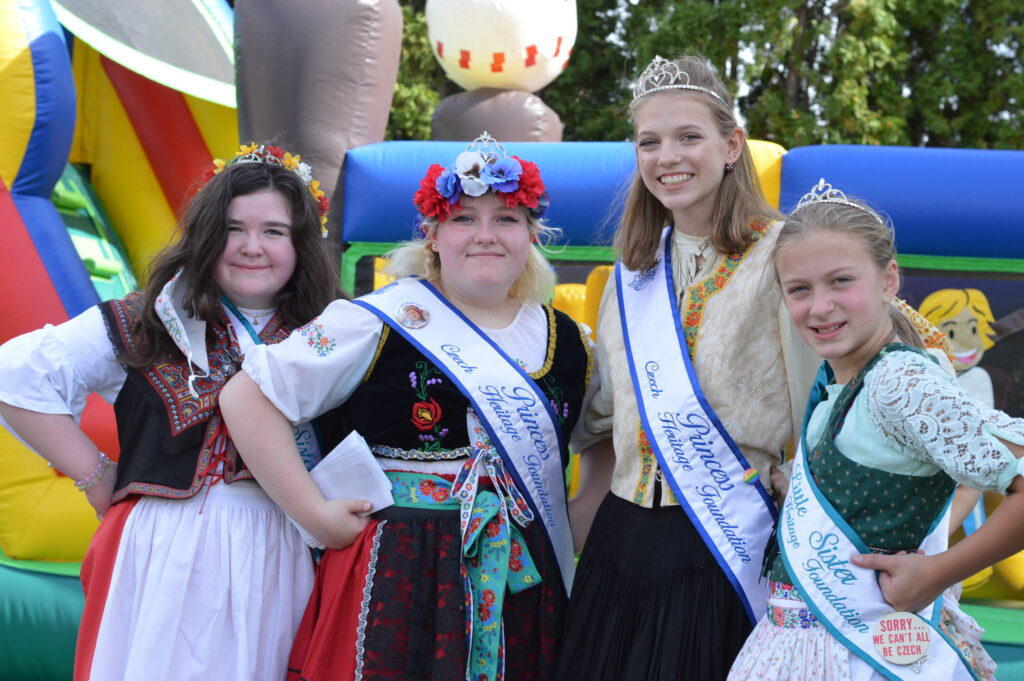
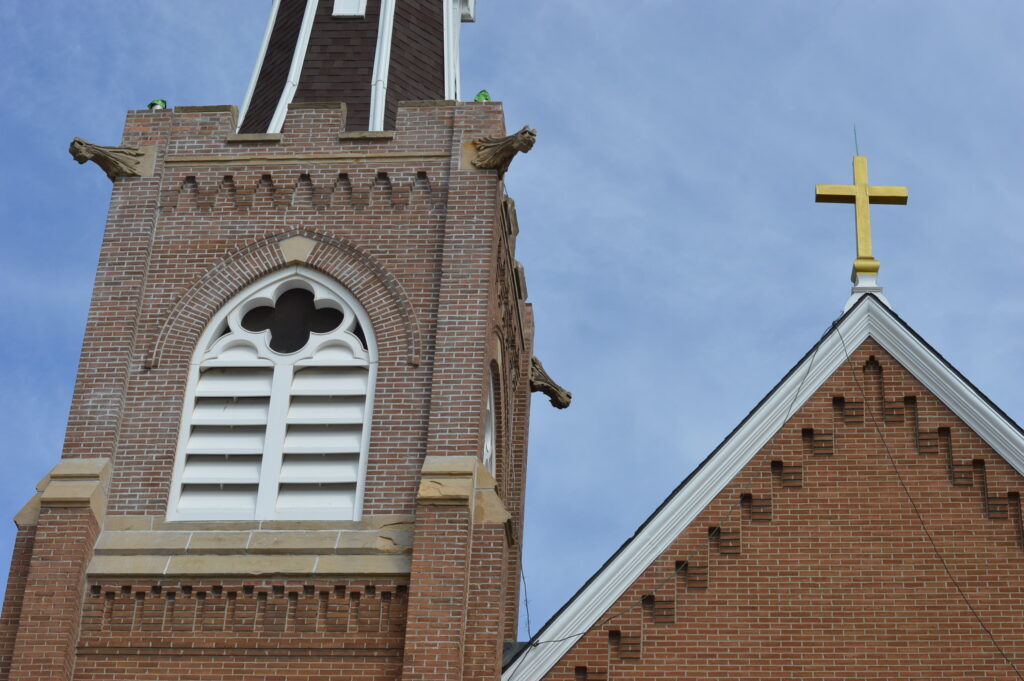
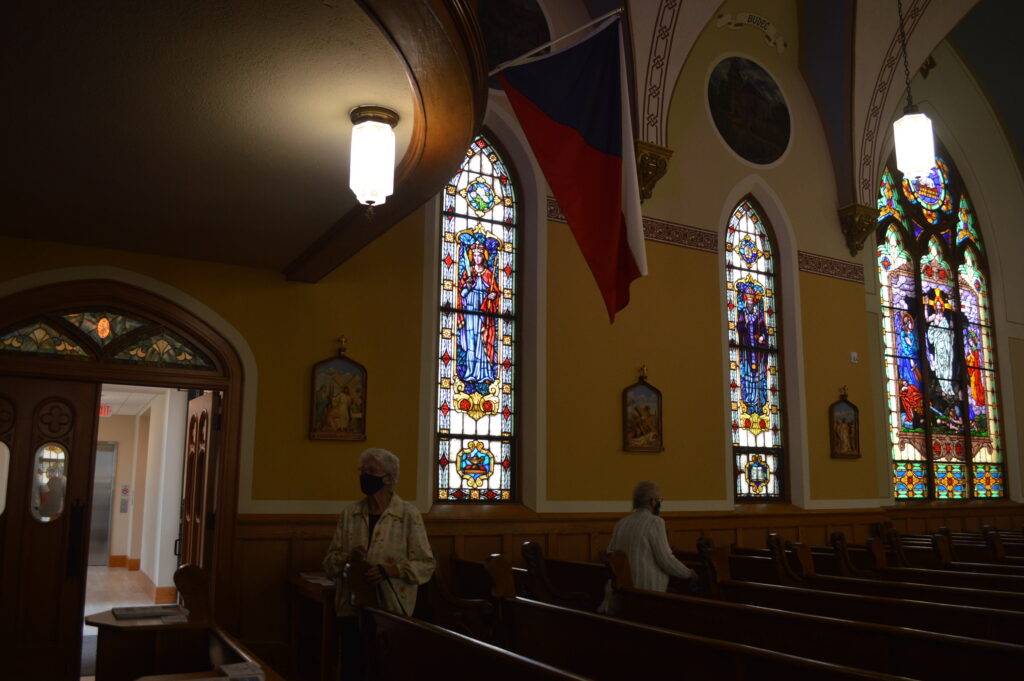
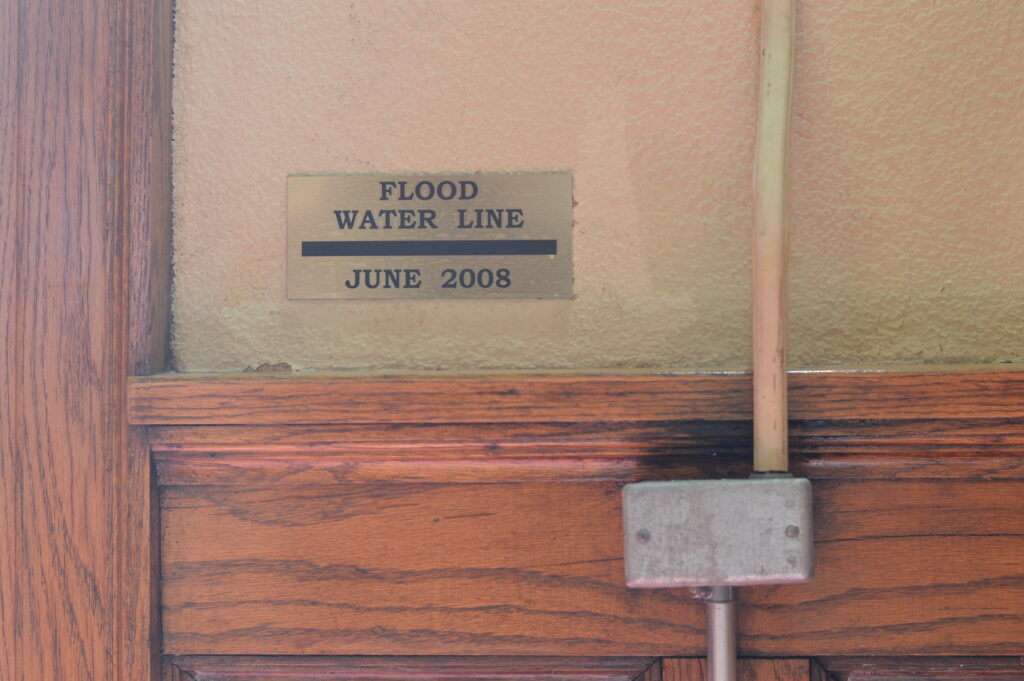
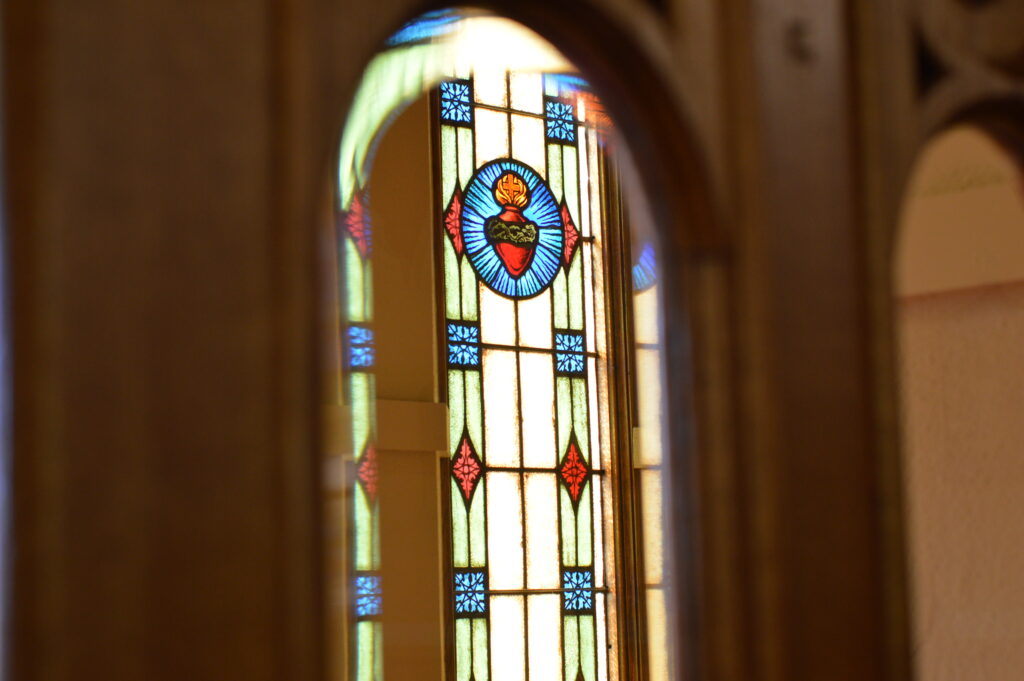
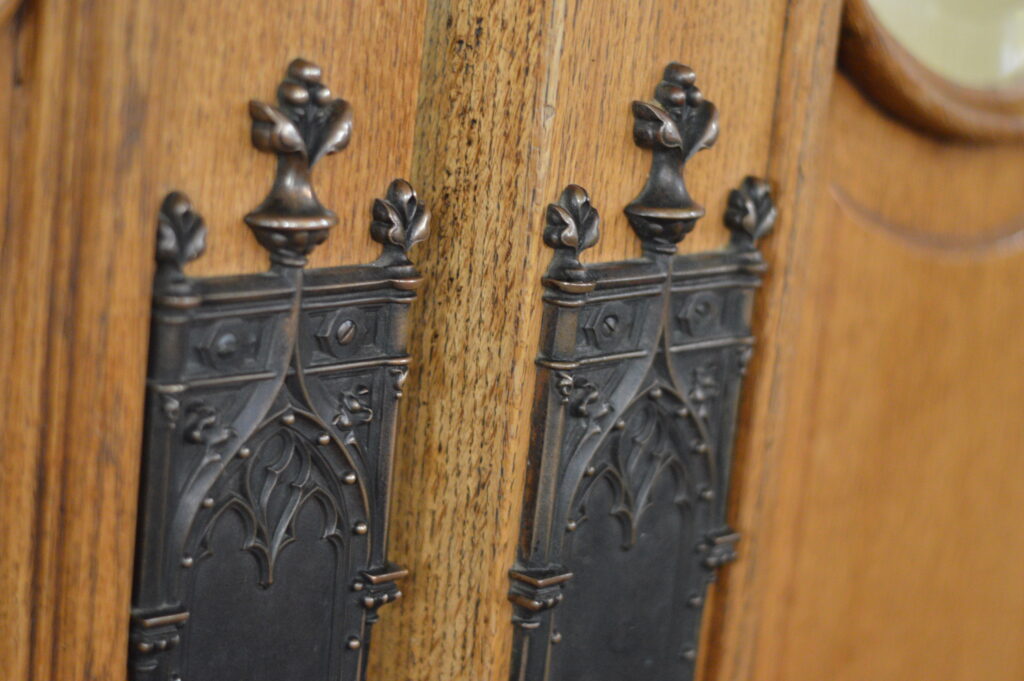
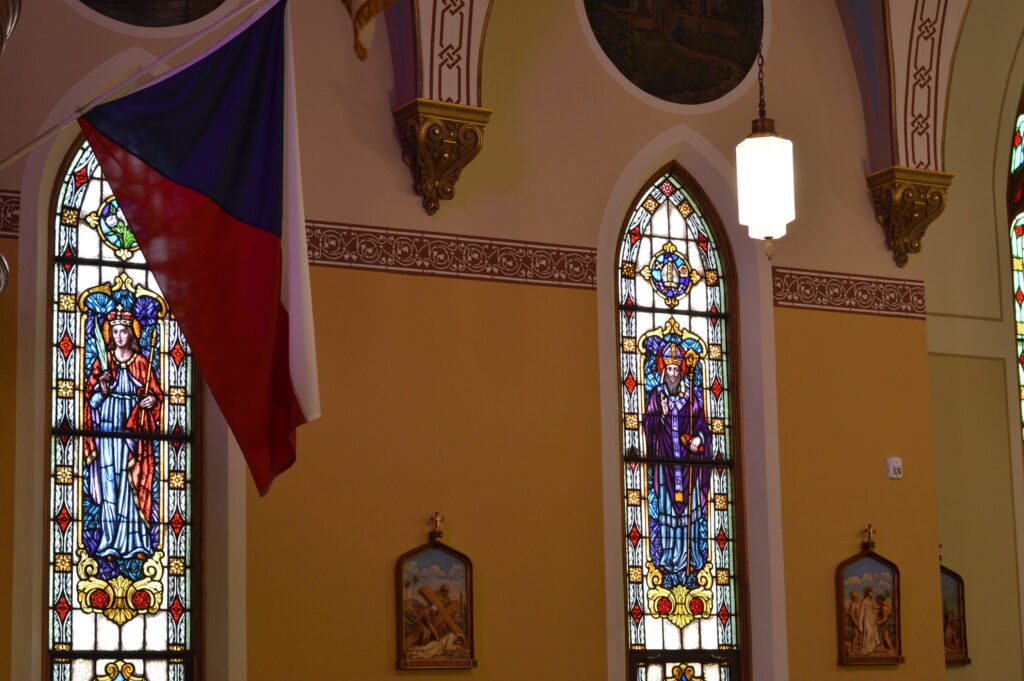
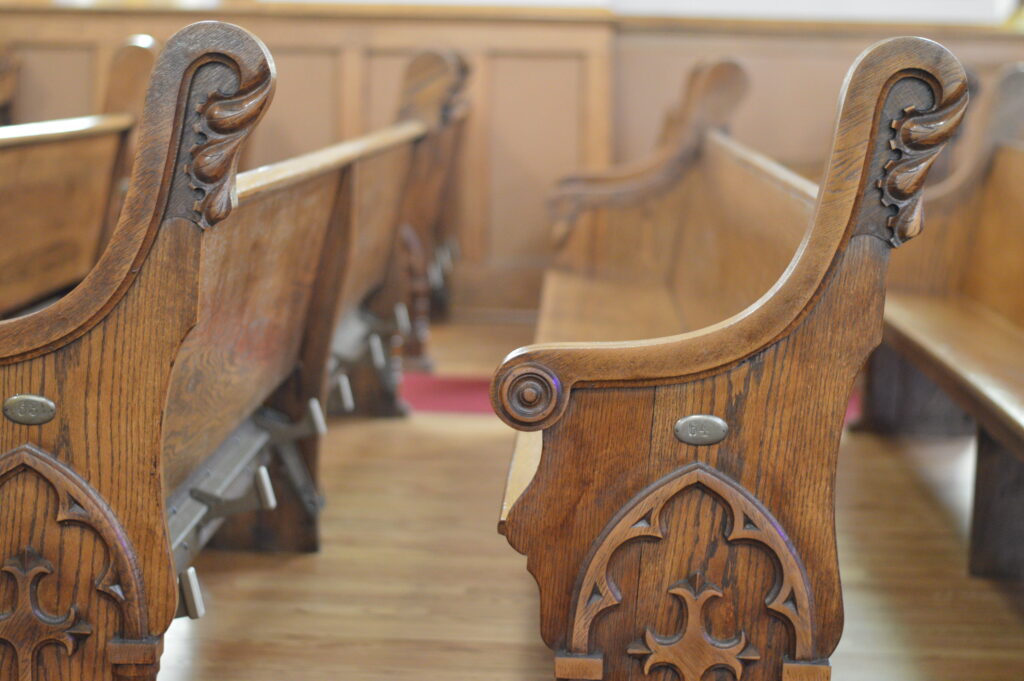
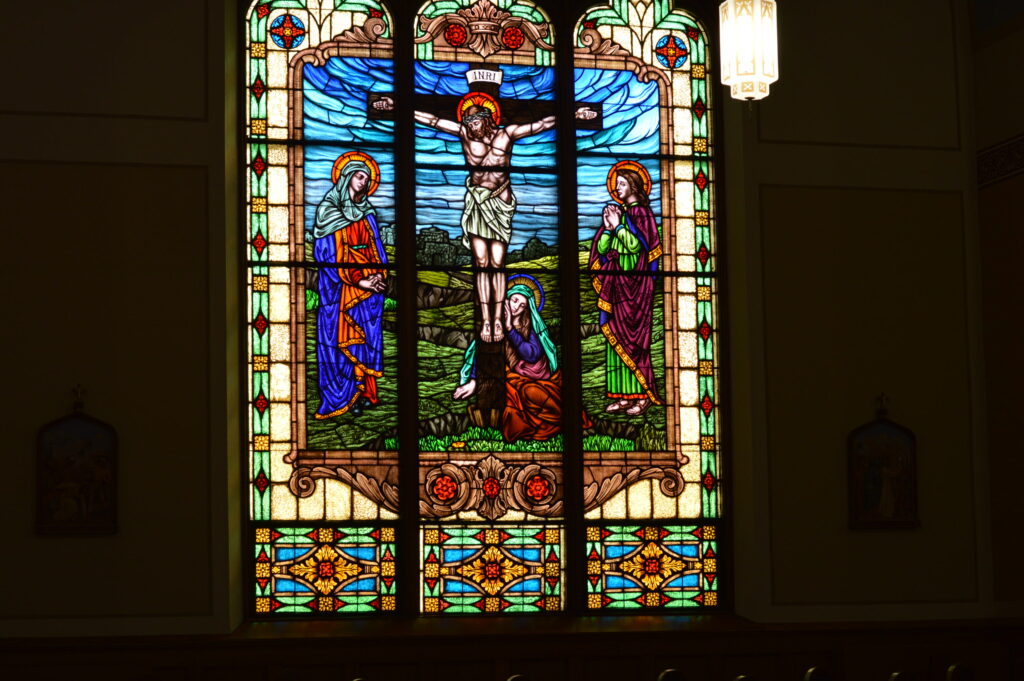
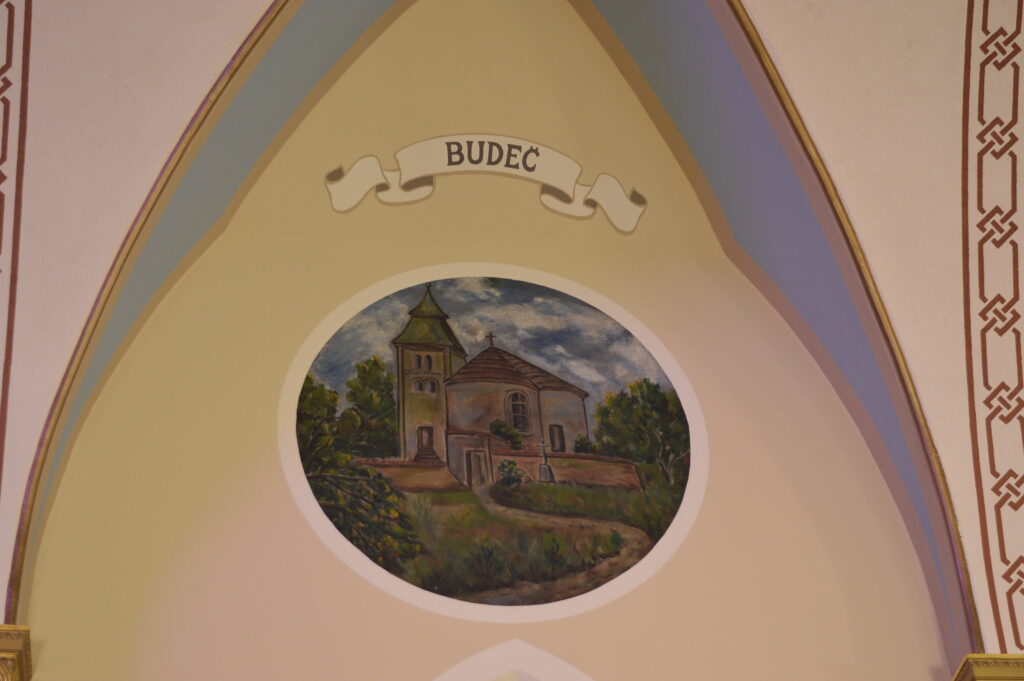
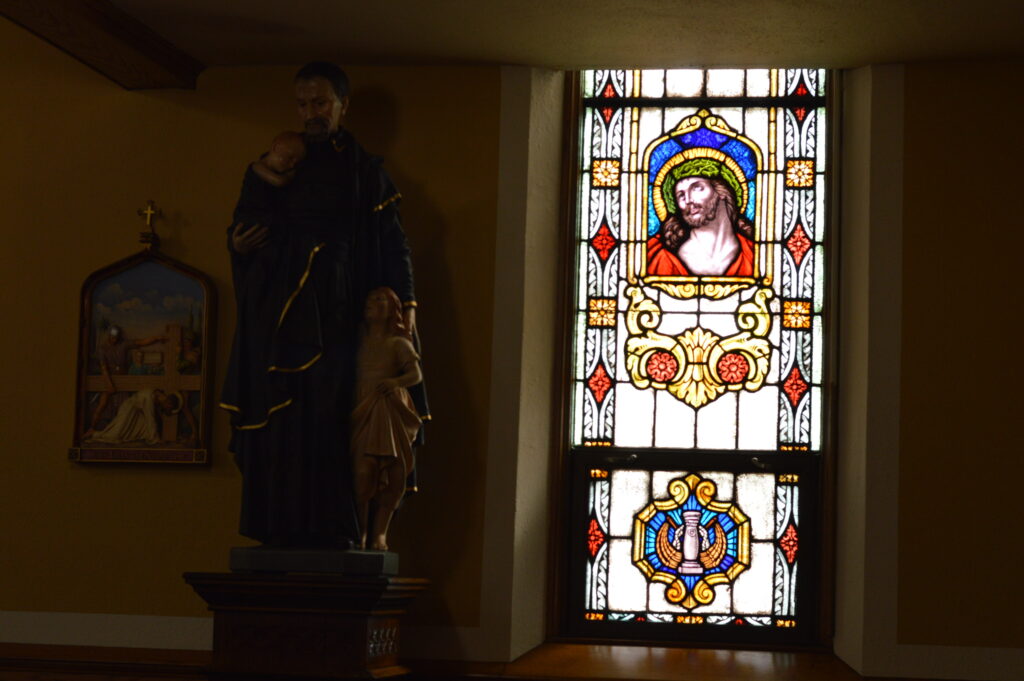
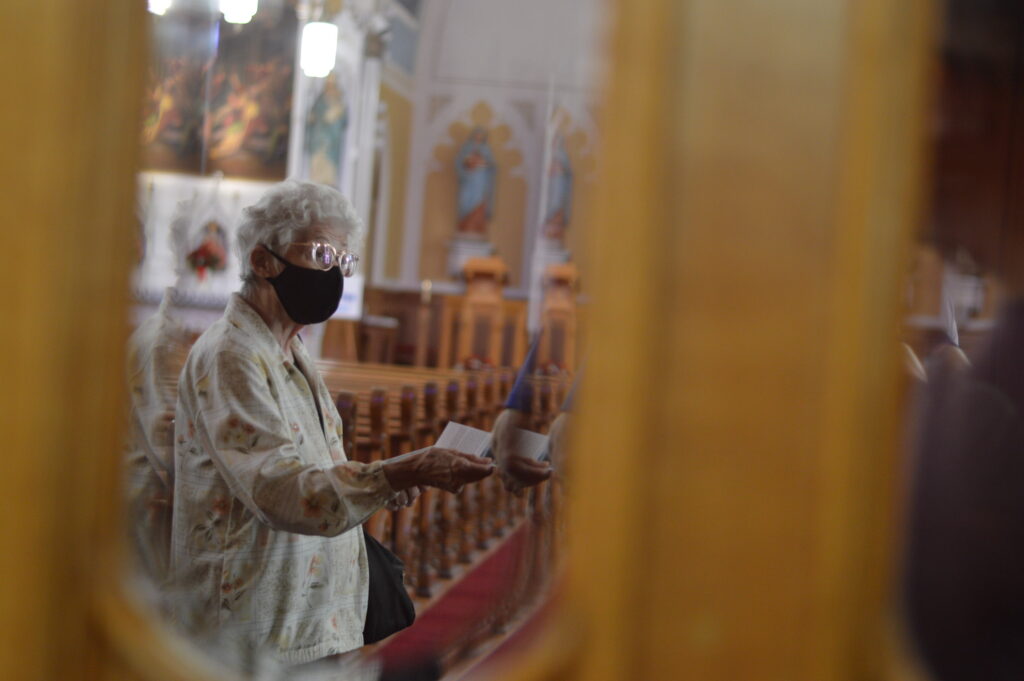
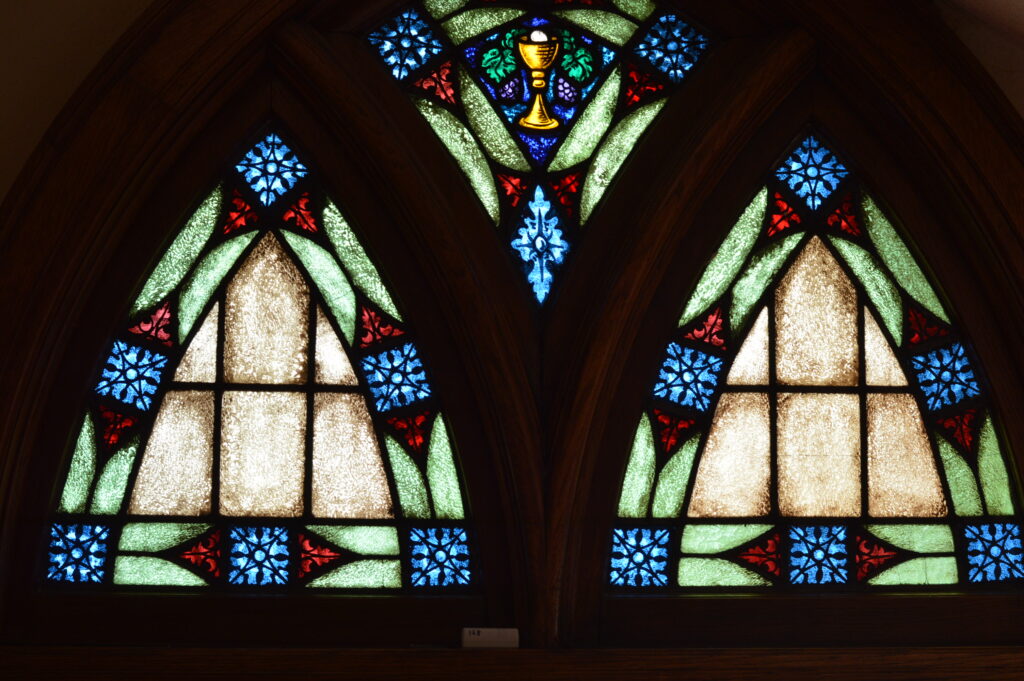
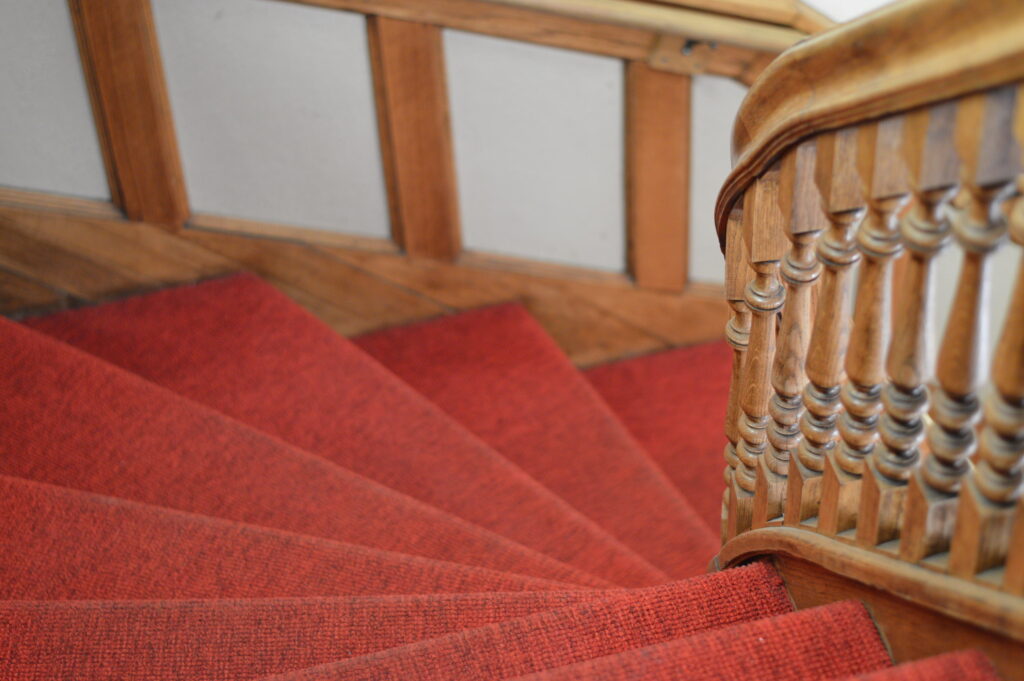
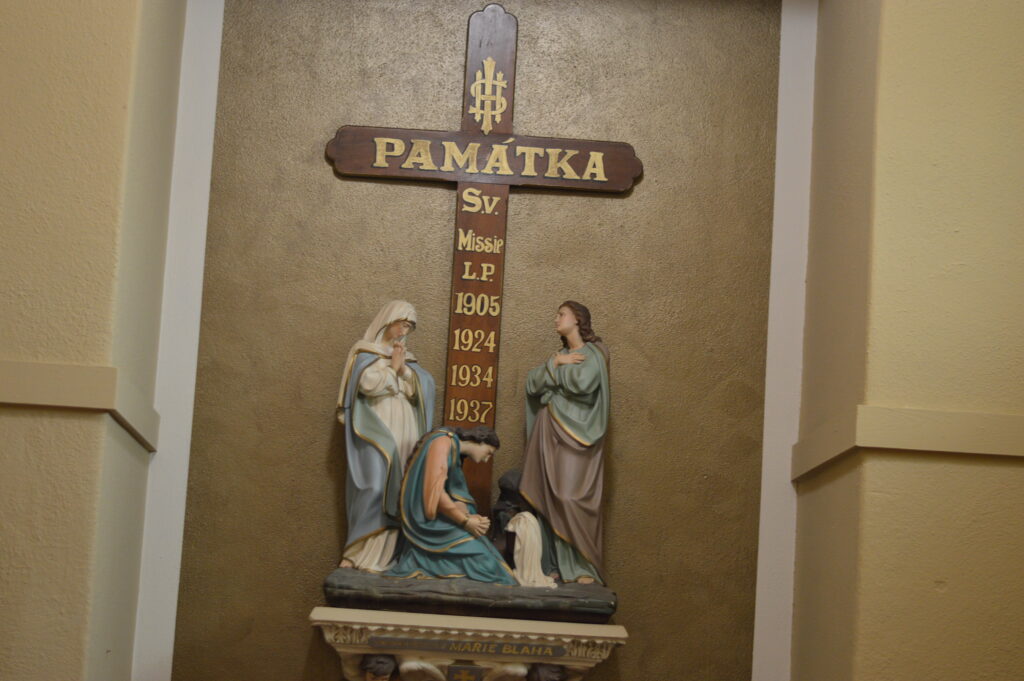
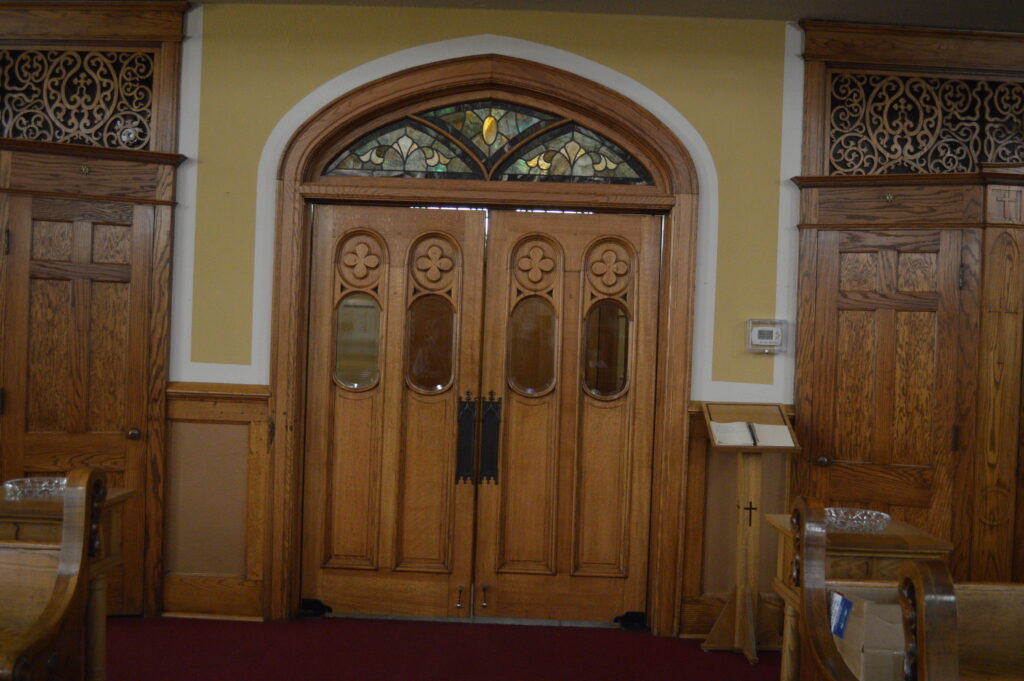
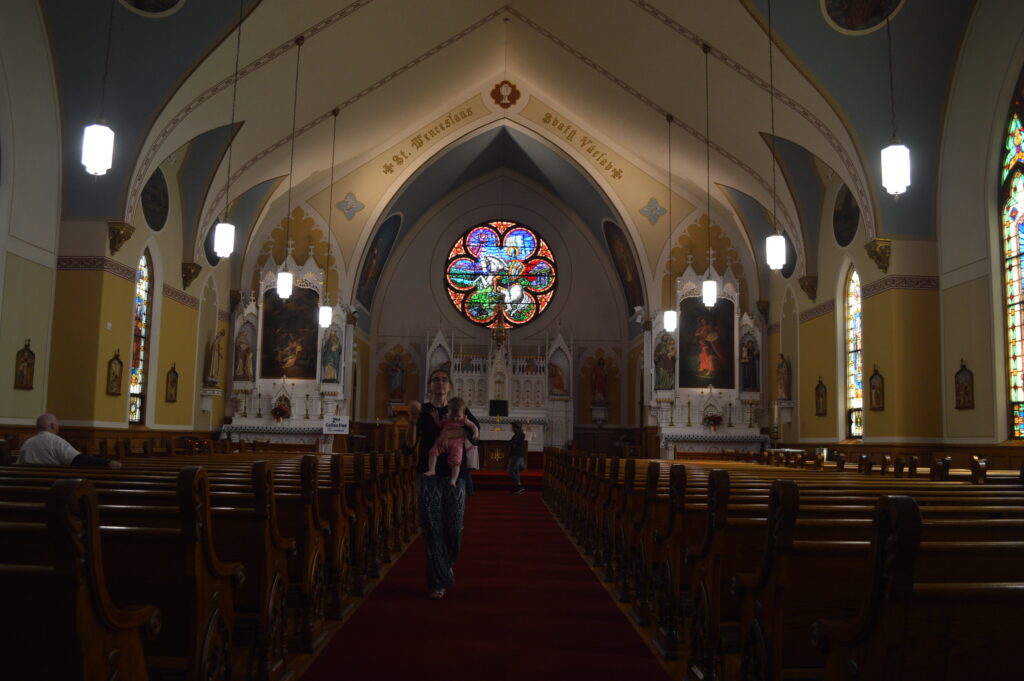

[…] See photos from the 2021 Czech Goulash Day […]
[…] See photos from the 2021 Czech Goulash Day […]